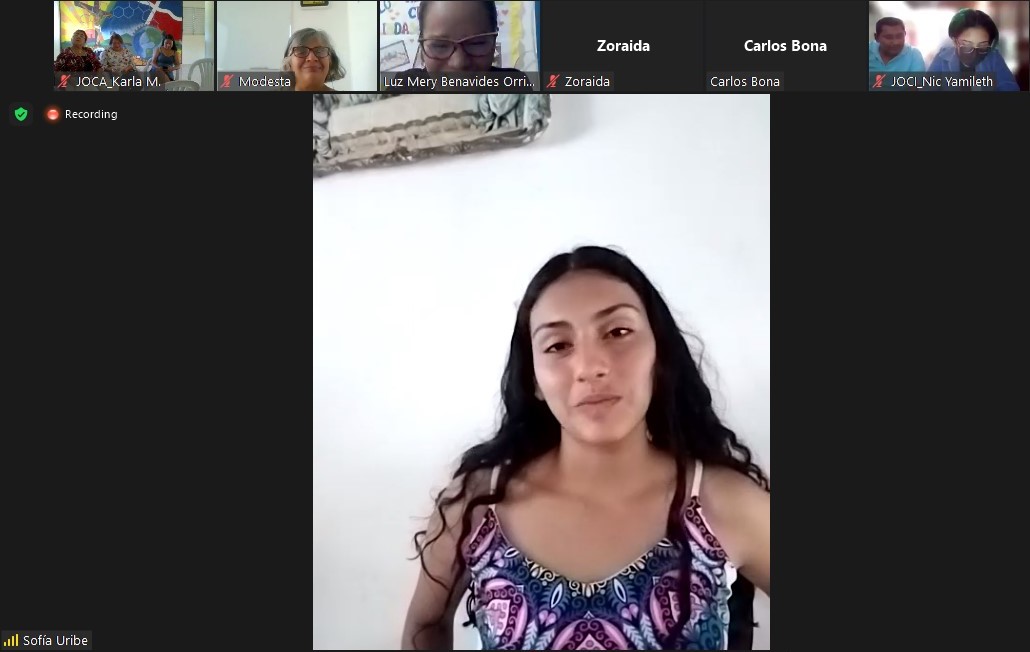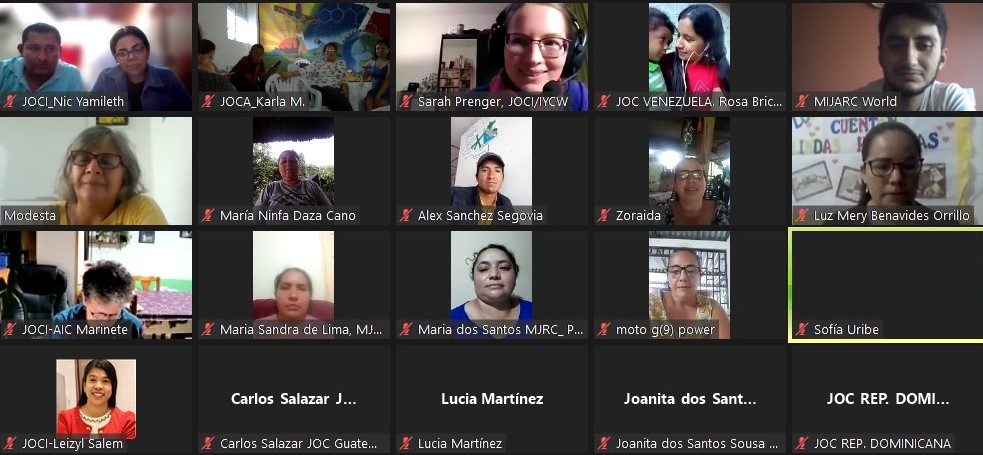
On November 21, three well-known international organizations held a seminar on “Women’s Participation and Empowerment in the World.” With the collaboration of Entraide et Fraternité, the MIJARC (International Movement of Catholic Agricultural and Rural Youth), the FIMARC (International Federation of Catholic Rural Adult Movements) and the IYCW (International Young Christian Workers) agreed to organize this seminar, in which young and adult women from countries such as Paraguay, Nicaragua, Peru, Colombia, Brazil, Haiti, Guatemala and the Dominican Republic participated.
The seminar, which was held online, had the important contributions of three participants from Peru, Nicaragua and Paraguay, who explained what it means to be a woman in their countries and described the reality they face in all aspects of their lives.
The three speakers, Yamileth del Socorro Díaz Mejia (YCW Nicaragua), Luz Mery Benavides (Mijarc ALC) and Modesta Arevalos (Fimarc-AlC), described the situation and working conditions, as the participating organizations are dealing with these issues in rural and urban areas. They highlighted the inequalities that exist in terms of remuneration, with women generally earning less for the same work. The underlying message is that they are less qualified, which is totally false. The ability to do a job in the world of work does not depend on whether you are a man or a woman, but on the training opportunities available to you.
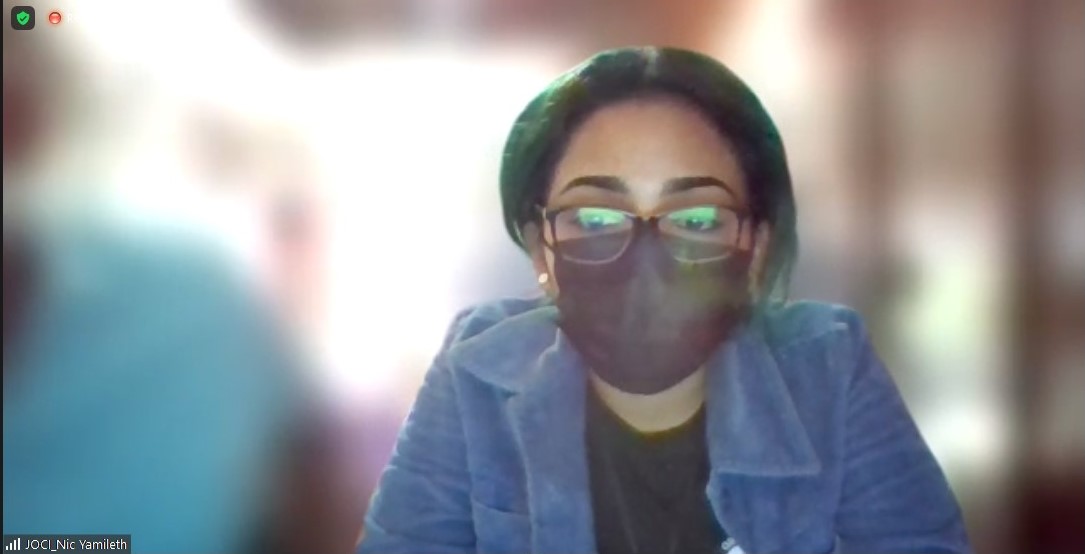
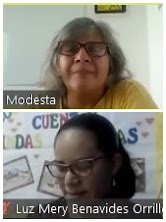
In another connection, the pandemic has had a greater impact on women, with economic and health consequences. Unemployment statistics show that more women than men have lost their jobs. In addition, many small and micro-businesses have closed down, sectors in which women are predominantly employed.
There was also a common view among the participating countries regarding the lack of access or partial access to education. The possibilities of training and completing one's studies depend on the existence of suitable and sufficient schools in the territories and, in general, on the living conditions that allow women to remain in the educational system.
In the different countries there are laws, some more advanced and others less so, that theoretically guarantee equality, regardless of gender, religion and other aspects that make people diverse. Nevertheless, in practice, the necessary measures are not always taken to guarantee access to the same rights or to meet the specific needs of women.
Women face enormous challenges in raising their children. Many are lone or single mothers who must combine long working days with caring for their families and household chores. On a personal level, there are still places where women must ask their husbands for permission to study and work.
It is important to emphasize how unfair and unequal it is to have to take care of household tasks. This work is not recognized, it is not paid, it is not balanced and it is not shared, with very few exceptions.
Finally, it is important to mention the issue of violence, both at home and in public spaces or leisure venues.
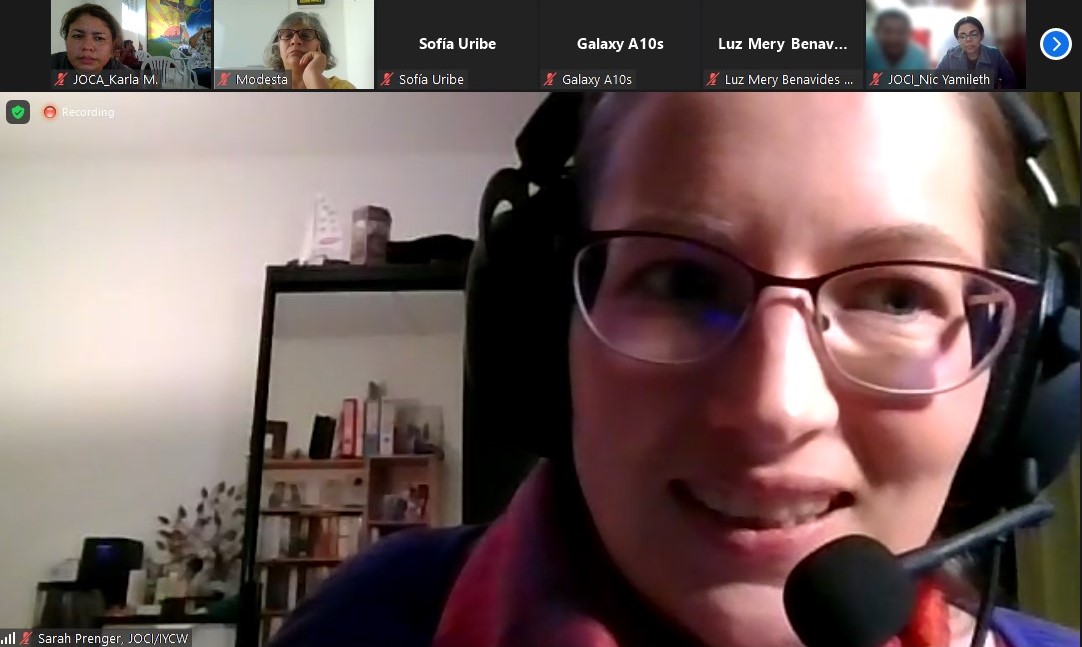
In summary, the patriarchal and macho system discriminates, it creates and perpetuates inequalities. When we talk about a system, we are referring to consolidated behaviors in society, both on the part of men and women themselves, as well as in political, economic, religious, social and cultural institutions in general.
In terms of challenges, the speakers first emphasized the need to recognize ourselves as human beings, equal in dignity and rights, in order to break away from negative messages and move forward on the path to autonomy. Economic autonomy is very important in order to progress in all other areas. The pandemic has shown very clearly the importance of care; care must be recognized in terms of remuneration and task sharing. Another challenge is the recognition of domestic tasks, which must be quantified and remunerated.
It is necessary to look for meeting and negotiation points, to find circles of trust, healing and training.
As organizations, we must pay attention to equality and to the demands made to the outside world, but internally we must also make progress in terms of parity, making sure that women occupy public institutional spaces and endeavoring to ensure a balanced presence of women and men, from local groups to the international level.
